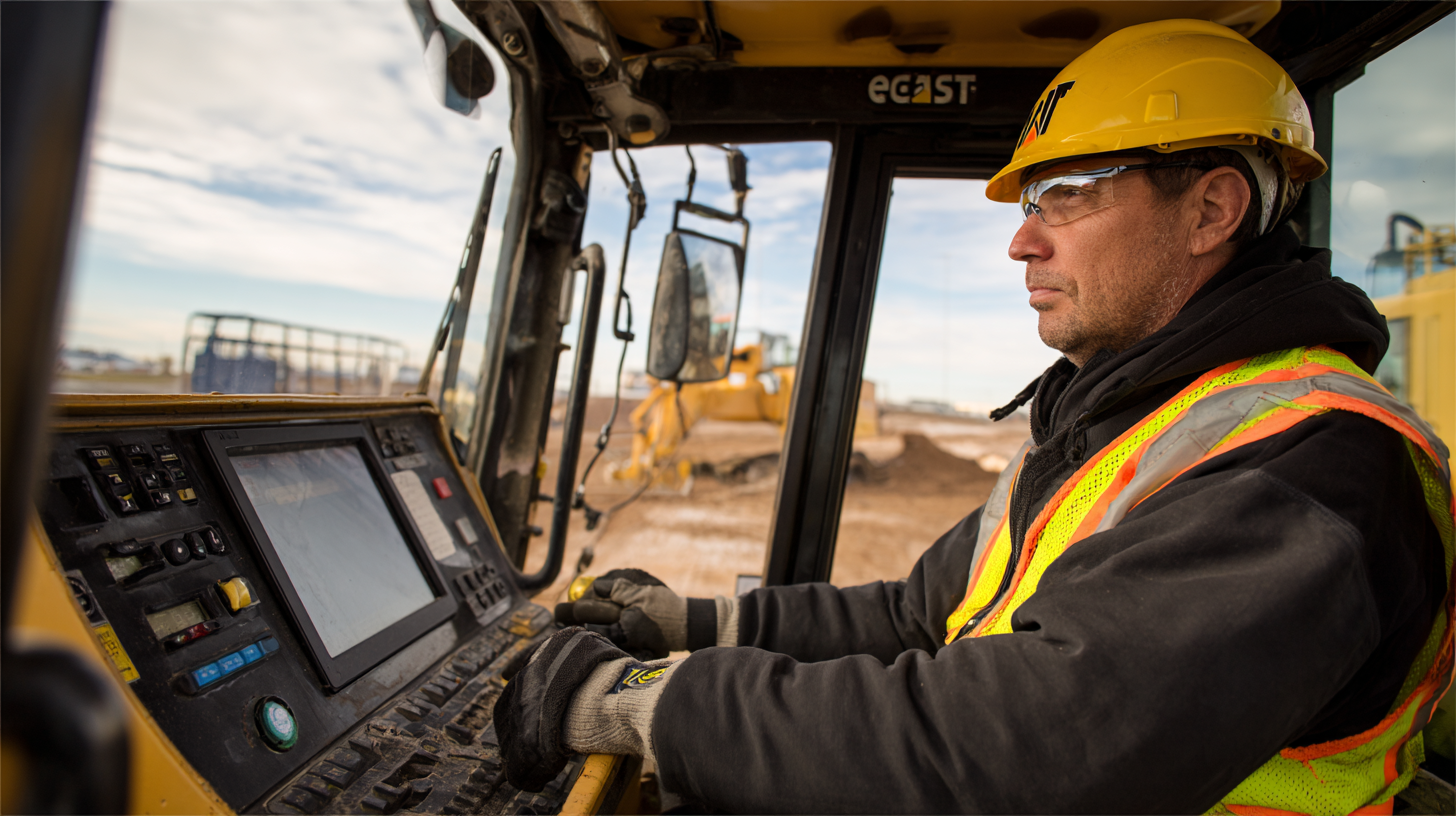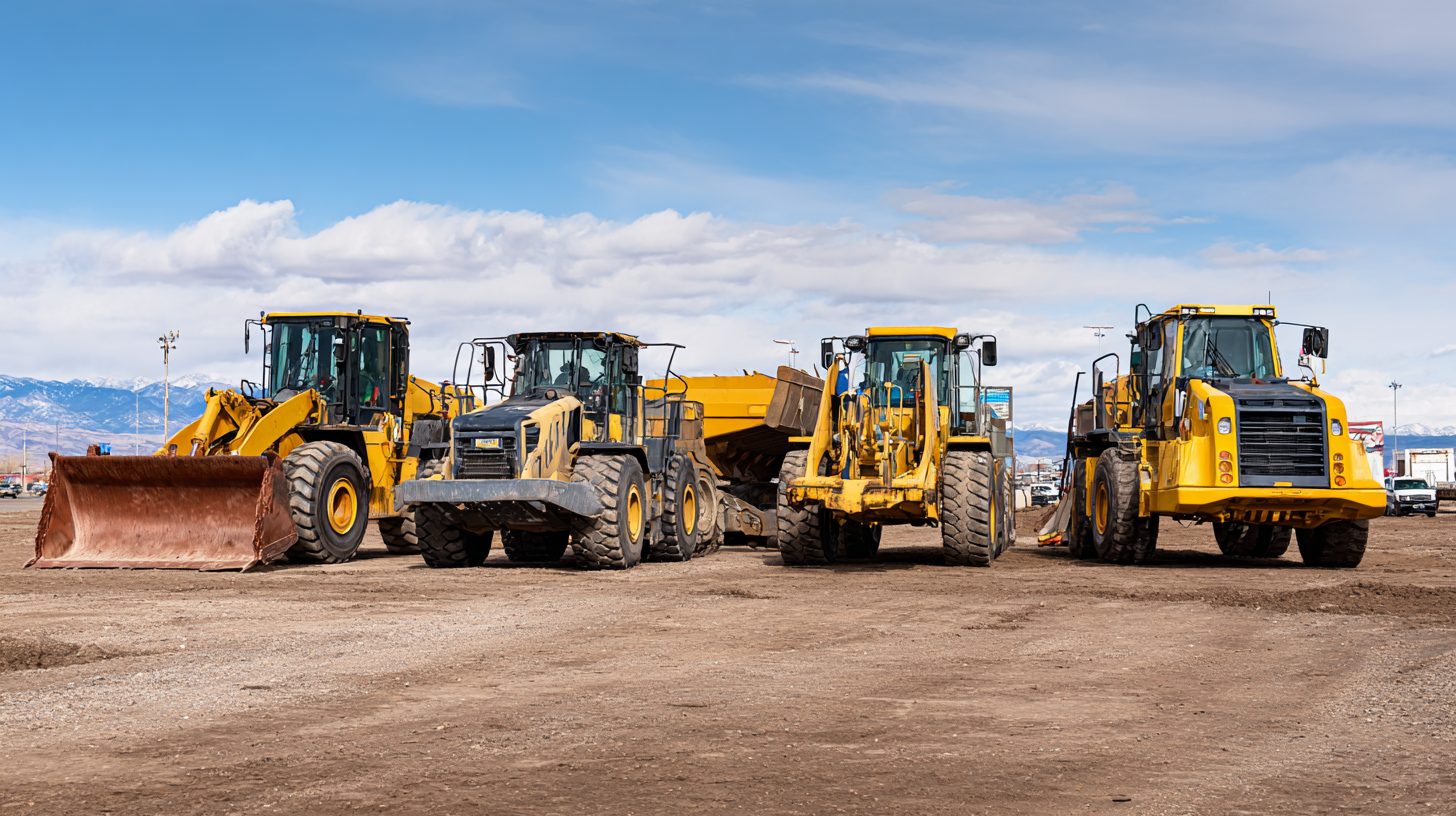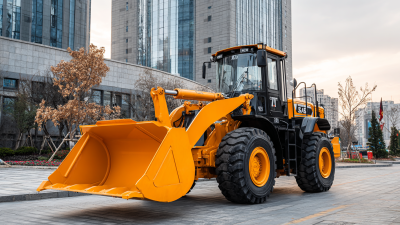Leave Your Message
-
Phone
-
E-mail
-
Whatsapp
As the construction industry continues to evolve in 2024, the role of the Heavy Equipment Operator remains crucial to achieving efficiency and productivity on job sites. According to the Bureau of Labor Statistics, employment of heavy equipment operators is projected to grow by 10 percent from 2022 to 2032, which is much faster than the average for all occupations. This growth is driven by the increasing demand for infrastructure improvements and the need for skilled operators to manage advanced machinery. To thrive in this competitive landscape, aspiring and current Heavy Equipment Operators must arm themselves with essential skills and strategies that not only enhance their operational capabilities but also ensure safety and compliance with the latest industry standards. In this blog, we will explore seven essential tips for success that will pave the way for a rewarding career as a Heavy Equipment Operator in 2024 and beyond.

As heavy equipment operators navigate the evolving landscape of 2024, understanding the key skills necessary for success becomes imperative. The manufacturing sector is experiencing significant changes, with a heightened emphasis on innovation and technology integration. According to recent insights, China has positioned itself as a leader in advanced industries, showcasing the importance of staying abreast of technological advancements. Heavy equipment operators must develop a strong foundation in digital tools, as digital transformation is reshaping operations with innovations like predictive maintenance technologies and autonomous machinery.
Moreover, there is a pressing concern regarding the labor supply in skilled trades. Data from the Census of Population in Canada indicates a noticeable decline in tradespeople between 2016 and 2021. This emphasizes the need for operators not only to refine their technical skills but also to adopt strategic problem-solving and critical thinking abilities to remain competitive in the job market. As the manufacturing industry prioritizes investments in digital infrastructure to address skill gaps, operators must be equipped to adapt and thrive amid these changes, ensuring their expertise aligns with the evolving demands of the sector.
As heavy equipment operators take on critical roles across various construction and industrial sectors, understanding and implementing top safety practices is essential to minimize risks. According to the Occupational Safety and Health Administration (OSHA), the construction industry alone accounts for about 20% of workplace fatalities in the United States, often linked to equipment-related incidents. Operators must prioritize safety protocols to safeguard not only their well-being but also that of their colleagues and the general public.
One vital practice is the consistent use of Personal Protective Equipment (PPE). Reports indicate that wearing appropriate gear can reduce the risk of injury by nearly 40%. This includes hard hats, high-visibility vests, and steel-toed boots. Additionally, regular training on equipment operation and safety can significantly decrease accidents, with statistics showing that companies that conduct frequent safety trainings experience up to a 60% reduction in incident rates. Operators should also engage in daily inspections of their equipment, ensuring all safety functions are operational before beginning any task, thus fostering a culture of vigilance in the workplace.

To thrive as a heavy equipment operator in 2024, obtaining the right certifications and training programs is crucial. First and foremost, operators should seek out accredited training institutes that offer comprehensive courses in heavy equipment operation. These programs typically cover essential skills such as operating bulldozers, excavators, and cranes, as well as safety protocols and maintenance procedures. Completing such training not only enhances your technical abilities but also makes you more desirable to potential employers, who often look for candidates with formal training.
In addition to foundational training, certifications can give operators a competitive edge in the job market. Obtaining certifications like OSHA (Occupational Safety and Health Administration) compliance can demonstrate your commitment to workplace safety, while endorsements from equipment manufacturers validate your expertise. Moreover, staying current with advancements in equipment technology, such as software integration and automation, can further distinguish you from your peers.
Continuous education and specialized training in these areas will prepare you for the evolving demands of the industry and ensure long-term career success.
In 2024, the heavy equipment industry is witnessing unprecedented technological advancements that are reshaping the landscape for operators. One of the most significant trends is the integration of automation and artificial intelligence (AI) into heavy machinery. These technologies not only enhance efficiency but also improve safety on construction sites. Operators are now able to utilize equipment equipped with autonomous features, reducing the risk of human error and increasing productivity. Embracing these innovations allows operators to focus on strategic decision-making rather than routine tasks.

Additionally, the use of telematics is on the rise, providing real-time data on equipment performance and maintenance needs. This connectivity empowers operators to make informed choices about repairs and usage, ultimately extending the lifespan of the machinery. Moreover, the incorporation of augmented reality (AR) in training programs enables new operators to develop their skills in a simulated environment, enhancing their readiness for the job. As heavy equipment operators adapt to these changes, staying informed about the latest technologies and trends will be crucial for ensuring career success in 2024 and beyond.
In the heavy equipment industry, networking and career advancement are paramount for operators looking to build a successful future. According to the Bureau of Labor Statistics, employment for heavy and tractor-trailer truck drivers is projected to grow by 5% from 2022 to 2032, suggesting an increasing demand for skilled operators. Engaging with industry professionals through organizations like the Associated General Contractors (AGC) can open doors for mentorship and job opportunities. The value of attending trade shows and conferences cannot be overstated; not only do they offer insights into the latest technology and practices, but they also provide a platform for fostering important connections.
Moreover, continuous education and certification are key strategies for advancement. A report from the National Center for Construction Education and Research (NCCER) highlights that operators with additional certifications can earn upwards of 10-15% more than their non-certified peers. Engaging in specialized training programs not only enhances skill sets but also signals to potential employers a commitment to quality and safety. Pairing these efforts with active involvement in local unions or professional groups can significantly elevate an operator's profile within the industry, creating pathways for leadership roles and other opportunities for growth.






